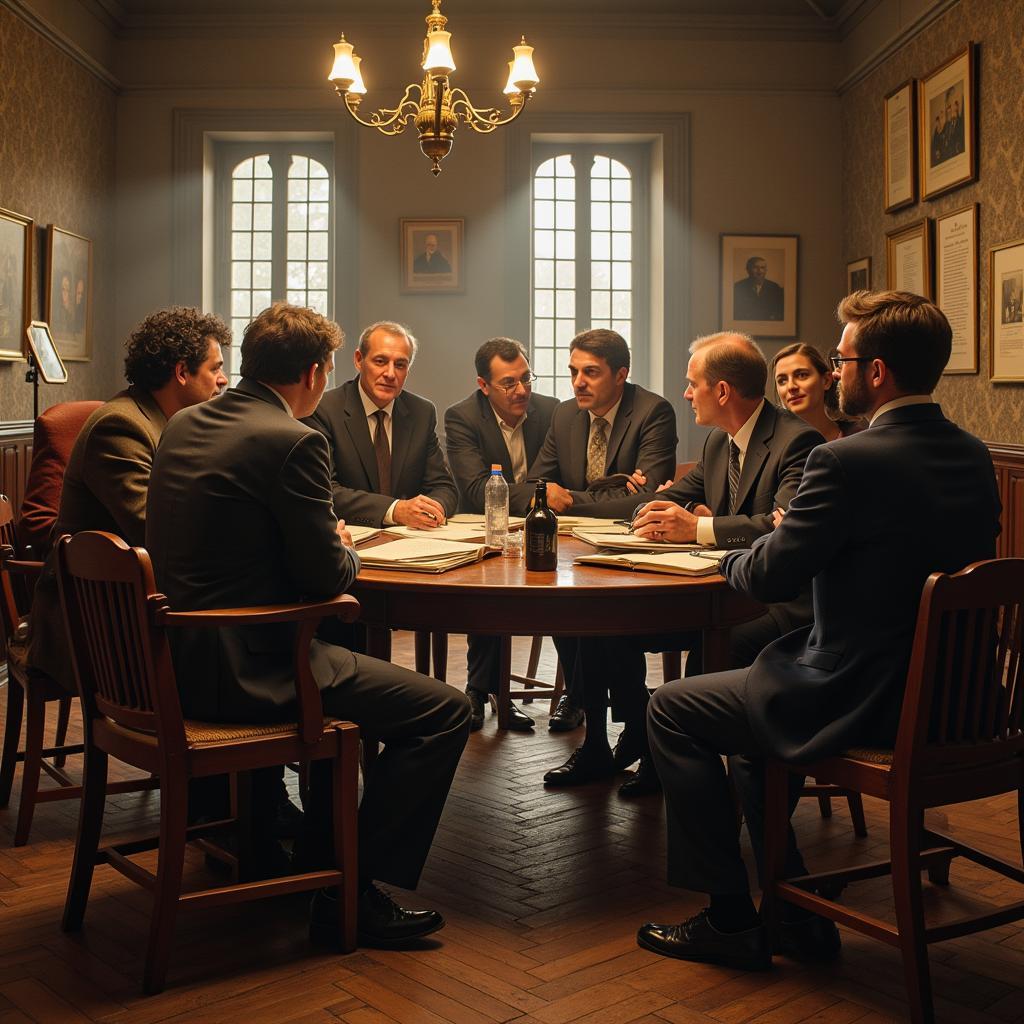Delving into the mysteries of the past requires more than just a curious mind; it demands a rigorous and systematic approach. That’s where Methods In Historical Research come into play, providing a framework for uncovering, analyzing, and interpreting the echoes of bygone eras. These methods, honed over centuries of scholarly pursuit, empower us to sift through the sands of time, separating fact from fiction and weaving together compelling narratives of the past.
Unraveling the Threads of Time: Primary and Secondary Sources
At the heart of historical research lies the critical distinction between primary and secondary sources. Primary sources serve as the bedrock of our understanding, offering firsthand accounts, raw data, and unfiltered glimpses into the past. Imagine holding a weathered letter penned by a soldier during a pivotal battle or examining an original artifact unearthed from an ancient civilization – these are the treasures that breathe life into historical inquiry. On the other hand, secondary sources provide interpretations, analyses, and syntheses of primary sources. They encompass scholarly articles, textbooks, and documentaries – valuable resources that offer context and diverse perspectives on historical events.
Asking the Right Questions: Formulating Research Questions
 Formulating Research Questions in History
Formulating Research Questions in History
Before embarking on a historical investigation, it’s crucial to define the scope and direction of your inquiry by formulating clear and focused research questions. These questions act as guiding stars, illuminating the path of your research and shaping the methods you employ. For instance, if you’re intrigued by the Salem Witch Trials, your research questions might revolve around the social, political, or religious factors that contributed to this dark chapter in history.
Assembling the Pieces of the Puzzle: Data Collection Methods
The quest for historical knowledge often leads researchers on thrilling expeditions to archives, libraries, and museums – the treasure troves of historical data. Archival research, a cornerstone of historical inquiry, involves meticulous examination of primary sources such as government documents, personal diaries, and organizational records. Imagine the thrill of uncovering a long-lost map or deciphering a coded message, each discovery bringing you closer to unraveling the mysteries of the past.
Beyond archival research, historians employ a range of qualitative and quantitative methods to gather data. Oral history, for instance, relies on interviewing individuals who have lived through significant historical events, capturing their firsthand experiences and perspectives. Quantitative methods, on the other hand, involve analyzing statistical data, demographic trends, and other numerical information to uncover patterns and draw conclusions about the past.
Beyond the Surface: Historical Interpretation and Analysis
 Historical Interpretation and Analysis
Historical Interpretation and Analysis
Gathering historical data is just the first step; the real challenge lies in interpreting and analyzing the information to construct meaningful narratives. Historians employ a range of analytical tools to critically examine sources, identify biases, and piece together fragmented information. They consider the historical context, the author’s perspective, and the intended audience of each source, recognizing that every piece of evidence contributes to a larger and more complex story.
The Ever-Evolving Narrative: Conclusion
Methods in historical research provide a dynamic and ever-evolving framework for exploring the past. By embracing these methods, we embark on a journey of discovery, uncovering forgotten voices, challenging established narratives, and gaining a deeper understanding of the forces that have shaped our world. As we continue to refine our methods and explore new avenues of inquiry, the study of history remains a vital and vibrant field, offering endless opportunities to learn from the past and shape our future.
If you’re eager to delve deeper into the fascinating world of historical research, explore our articles on historical research method, religion research topics, and historical research paper sample. Remember, the past is not merely a collection of dates and events; it’s a tapestry woven with countless stories waiting to be uncovered.